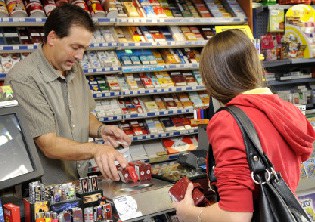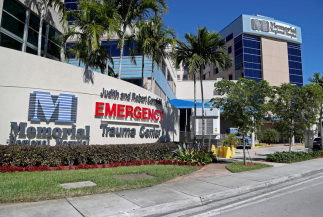What Is Rapid Detox? Top 6 Ways to Improve Your Health and Recover Addiction

Addiction is a pervasive problem that affects millions of individuals worldwide. Whether it’s substance abuse or behavioral addictions, breaking free from the grip of addiction is a challenging and complex journey. One approach that has gained attention in recent years is rapid detoxification. Rapid detox refers to an accelerated process of detoxifying the body from addictive substances, enabling individuals to begin their recovery journey more quickly. In this article, we will explore the concept of rapid detox and delve into the top six ways to improve your health and recover from addiction.
Understanding Rapid Detox
Rapid detox, also known as ultra-rapid detoxification, is a medical procedure designed to expedite the process of detoxification. It involves administering medication to speed up the withdrawal phase, allowing individuals to quickly rid their bodies of addictive substances. This procedure is typically performed under the supervision of trained medical professionals in a specialized facility. While rapid detox may help jumpstart the recovery process, it is essential to understand that it is not a standalone treatment but rather a starting point for a comprehensive addiction recovery plan.
Comprehensive Assessment and Individualized Treatment
An integral part of addiction recovery is a comprehensive assessment conducted by addiction specialists. This evaluation helps identify the underlying causes and contributing factors to addiction. Based on the assessment results, an individualized treatment plan is developed, taking into account the specific needs and circumstances of each person. By tailoring the treatment to address individual challenges, it becomes more effective in promoting sustainable recovery. Certainly! going through a detox can be a challenging process, but with the right strategies and support, it becomes more manageable. Here are some tips to help you navigate the detoxification process:
Seek Professional Guidance:
It is crucial to consult with medical professionals or addiction specialists before starting a detox program. They can provide guidance, monitor your progress, and ensure your safety throughout the process.
Set Realistic Expectations:
Detoxification is a unique experience for each individual, and it may involve discomfort and withdrawal symptoms. Setting realistic expectations and understanding that it is a temporary phase can help you stay focused and motivated.
Stay Hydrated:
Drinking plenty of water during detoxification helps flush out toxins from your body and keeps you hydrated. It can also help alleviate headaches, fatigue, and other common withdrawal symptoms.
Practice Self-Care:
Engaging in self-care activities can help manage stress and promote overall well-being during detox. This may include taking warm baths, practicing relaxation techniques like deep breathing or meditation, and engaging in activities that bring you joy and relaxation.
Therapeutic Interventions
Therapeutic interventions form the core of addiction recovery. These interventions may include individual counseling, group therapy, cognitive-behavioral therapy (CBT), dialectical behavior therapy (DBT), and other evidence-based approaches. Through therapy, individuals gain insights into their addictive behaviors, learn coping skills, and develop strategies to prevent relapse. Engaging in regular therapy sessions provides ongoing support and guidance throughout the recovery journey.
Holistic Approaches
In addition to traditional therapy, incorporating holistic approaches can significantly enhance the recovery process. Holistic practices such as yoga, meditation, mindfulness, and art therapy help individuals reconnect with themselves and manage stress. These practices promote emotional well-being, reduce anxiety, and cultivate a sense of inner peace. By addressing the mind, body, and spirit, holistic approaches contribute to overall health and recovery.
Healthy Lifestyle Changes
Adopting a healthy lifestyle is crucial for sustaining recovery and improving overall well-being. This includes engaging in regular exercise, prioritizing proper nutrition, and ensuring adequate sleep. Exercise releases endorphins, the body’s natural feel-good chemicals, which can help reduce cravings and improve mood. A balanced diet rich in fruits, vegetables, and lean proteins provides essential nutrients for physical and mental health. Sufficient sleep restores energy levels and supports cognitive function, enabling individuals to make healthier choices.
Social Support and Community
Building a strong support network is essential during the recovery process. Connecting with others who have experienced similar challenges can provide a sense of understanding, encouragement, and inspiration. Joining support groups or participating in aftercare programs offers opportunities to share experiences, gain valuable insights, and receive ongoing support. Engaging with a recovery community helps individuals stay accountable, build resilience, and foster a sense of belonging.
In conclusion, rapid detox serves as a catalyst for jumpstarting the recovery journey from addiction. However, it is essential to remember that true healing and sustainable recovery require a comprehensive and personalized approach. By incorporating individualized treatment plans, therapeutic interventions, holistic practices, adopting a healthy lifestyle, and building a strong support network, individuals can enhance their overall well-being and successfully overcome addiction. Detoxification is just the beginning of a transformative journey towards a healthier and happier life, and with the right strategies and support, the path to recovery becomes more accessible. Remember, you are not alone, and there is hope and help available every step of the way.






